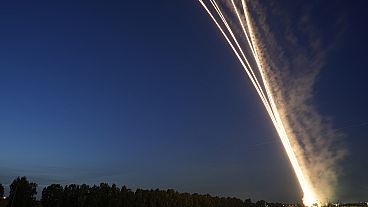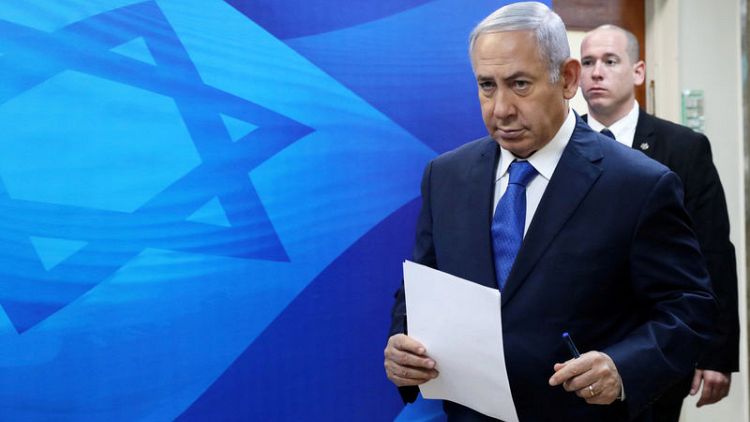JERUSALEM (Reuters) - Israeli Prime Minister Benjamin Netanyahu said on Wednesday that the Lebanese group Hezbollah had shut down plants to develop precision-guided missiles after Israel exposed them, and currently had at most just "a few dozen" of the weapons.
There was no immediate comment from the armed, Iran-backed political organisation which fought a war with Israel in 2006.
Netanyahu has accused Hezbollah of developing and stockpiling weapons capable of targeting his country's key infrastructure.
In a Sept. 7 speech to the United Nations, he named three locations near Beirut airport where he said the group was turning "inaccurate projectiles" into precision-guided missiles.
At the time, Lebanon's foreign minister Gebran Bassil, a political ally of Hezbollah, dismissed Israel's accusations and accused Netanyahu of trying to "justify another aggression" against Lebanon.
Netanyahu told an economic conference on Wednesday: "Those sites near the Beirut airport, the underground sites for precision conversion of missiles, which (Israeli) military intelligence gave me, to expose, those sites were closed."
"They are trying to open other sites," he said, without elaborating on where they might be located. "But through these measures we are denying them precision arms," Netanyahu added.
Hezbollah had hoped to obtain "thousands of precision-guided missile (but) they have, at most, a few dozen," he said.
On Sept 20, Hezbollah leader Sayyed Hassan Nasrallah said his group had obtained "precision and non-precision rockets and weapons capabilities" despite Israel's air strikes in Syria.
Israel has attacked suspected arms transfers to the Shi'ite Muslim group through neighbouring Syria.
(Writing by Dan Williams; Editing by Jeffrey Heller and Andrew Heavens)


